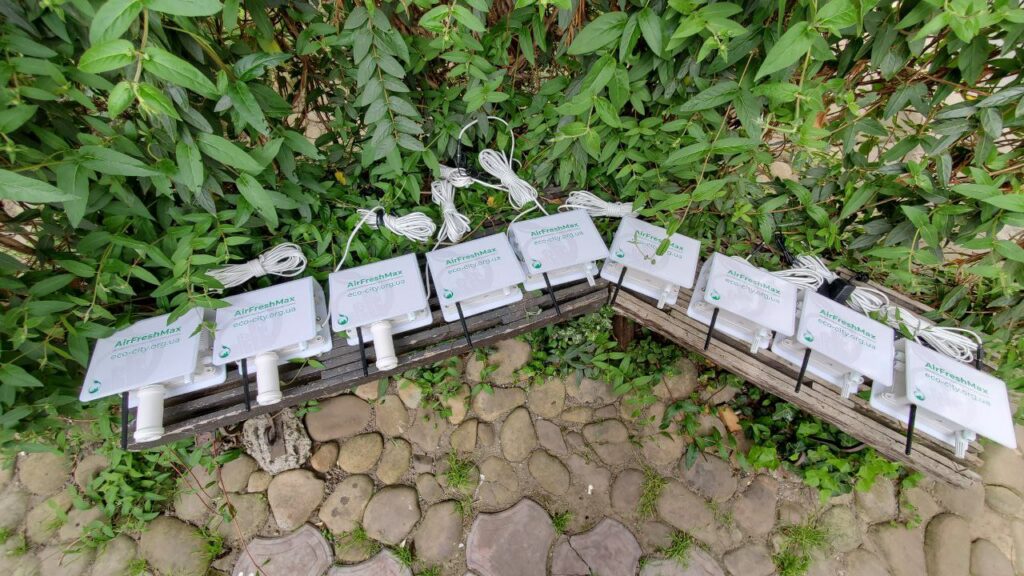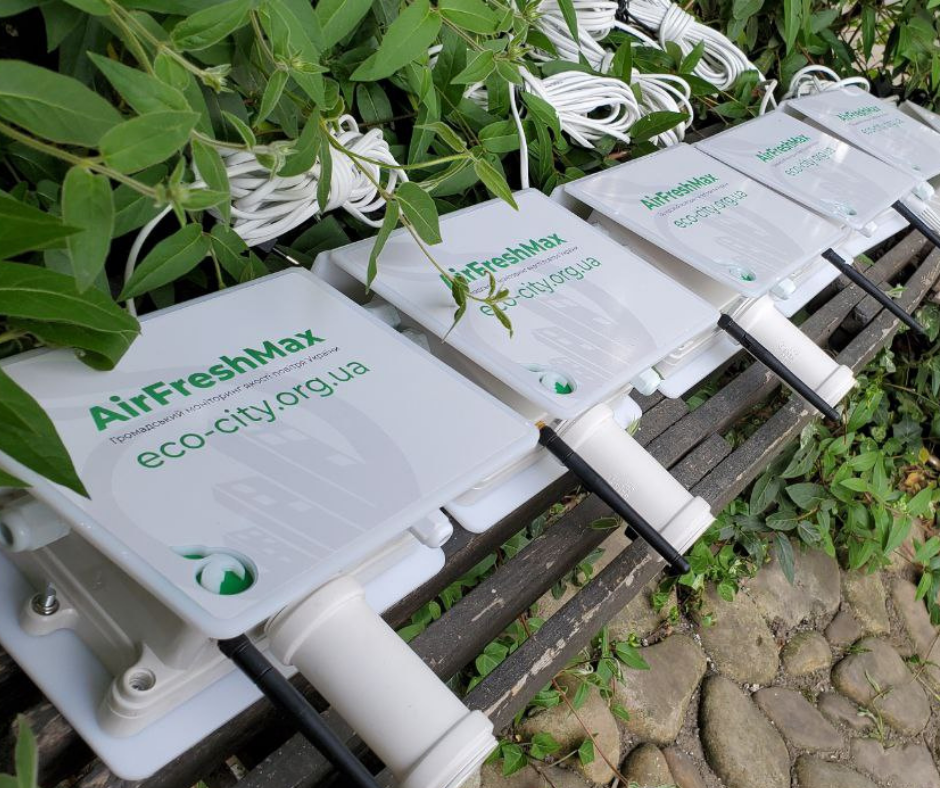The longer the war lasts, the more damage it does to the environment: the russian occupiers fire on factories, and blow up oil depots; fires occur due to intense shelling. All this causes significant pollution of the air we breathe. The risk of chemical attacks and radiation contamination remains high.
The environment should be a priority, especially during the war, so NGO Ecoclub together with the international project Clean Air for Ukraine with the support of the Czech NGO Arnica initiated the development of a network of public air monitoring posts in the Rivne region.
According to the Memorandum of Cooperation, 9 public air quality monitoring posts will be established in Rivne, Ostroh, and the village of Gorodok (Rivne district).

“Polluted air affects our health. Reports on the state of the environment in the Rivne region show a steady excess of pollutants: for example, in 2021 in Rivne, formaldehyde levels were exceeded 2-4 times. As government air monitoring stations do not allow us to monitor pollution in real-time, it is important to have independent air monitoring. In the village of Gorodok, where the largest industrial polluter of the region operates – the plant which produces ammonia fertilizers Azot, and the woodworking plant Kronospan has already started operating, there was no air monitoring until recently,” says Natalia Kholodova, campaigner of Ecoclub.
Ecoclub will install all the posts for free for motivated activists, on the buildings of public utilities or organizations.
“We are glad that the Rivne region joins European environmental safety systems. EcoCity is the largest and most modern air quality monitoring network. The posts installed in and around Rivne will analyze air quality for 19 indicators of pollution. Everyone will be able to view the information on the electronic map,” said Oleksiy Trelevsky, head of the Free Arduino NGO and curator of the Ukrainian public air quality monitoring network EcoCity.
Rivne has three stationary air quality monitoring posts. All posts are located in parts of the city with heavy traffic: on the streets of Nebesna Sotnia, Mlynivska, and Hrushevskoho. Air pollution level in the city determines the Rivne Regional Center for Hydrometeorology, whose employees take samples manually and report the results once a month. The Department of Ecology and Natural Resources of Rivne Regional State Administration publishes data on pollution once a quarter.
Due to the new air monitoring posts, residents of the region will be able to receive information about air pollution with various substances, and the level of radiation in real-time online.
The project Clean Air for Ukraine is implemented by the NGO Arnica (Prague, Czech Republic) with the financial support of the Transition Program of the Ministry of Foreign Affairs of the Czech Republic and the National Endowment for Democracy (USA). Our common goal is to improve access to environmental information and increase public participation in decision-making, to unite citizens to achieve improvement.












